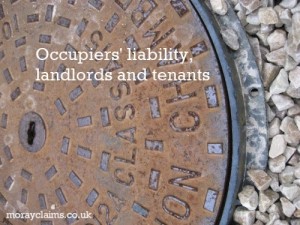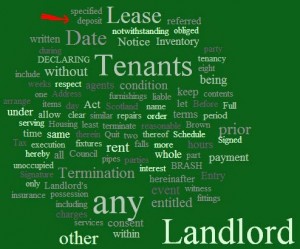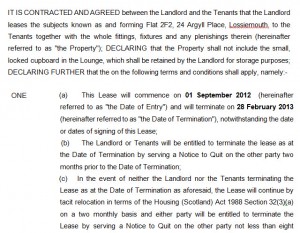Occupiers' liability may apply where a defective drain cover causes an accident on premises In this post, we are looking at situations where you might have a claim for injury following an accident on premises owned or occupied by someone else. In Scotland, the Occupiers’ Liability (Scotland) Act 1960, requires occupiers of premises to take reasonable care for people who come onto their premises to see to it that they are not injured due to the state of the premises. While this is a statutory duty, because the obligation imposed is to take reasonable care, you still have to prove fault, as under the general law of negligence. Often this will mean it is necessary to gather evidence about how long the hazard in question had been in existence before the accident. The argument you have to counter is that, if the defect had not been there for very long before the accident, there was not sufficient time for the occupier to identify it and repair it before any accident happened and so Continue Reading
Landlord and Tenant Articles
Below are listed our articles covering compensation claims as between Landlords and Tenants of residential property.
Costly Failure Scottish Landlords Must Avoid
A Tenancy Deposit Must Be Lodged With An Approved Third Party [EDITOR'S NOTE: Please note that, while the article which follows is still relevant in terms of the way the value of claims under the Tenancy Deposit regime are calculated, the procedure for making such claims are to be made in Scotland has altered from 01 December 2017. Most private domestic tenancy issues (i.e. tenancies without a local authority or social landlord) have been removed from the jurisdiction of the Sheriff Court. Now, these are now under the control of the First-tier Tribunal for Scotland (Housing and Property Chamber). This change means that it is not going to be financially viable in most cases to employ the services of a solicitor to make such claims. You can find further information on the mygov.scot website). Whether you are a landlord or a tenant of residential property in Scotland, you need to be aware of the new tenancy deposit landscape as it can have significant financial implications Continue Reading
Residential Landlords at Risk from Tenancy Deposit Claims
[EDITOR'S NOTE: Please note that the article which follows is still relevant in terms of the way the value of claims under the Tenancy Deposit regime are calculated. However, how such claims are to be made in Scotland has changed from 01 December 2017, with the removal of most private domestic tenancy issues (i.e. tenancies without a local authority or social landlord) from the jurisdiction of the Sheriff Court. Instead, these are now under the supervision of the First-tier Tribunal for Scotland (Housing and Property Chamber). This change means that it is not going to be financially viable in most cases to employ the services of a solicitor to make such claims. You can find further information on the mygov.scot website). If you own a house or flat in Scotland which you have let to tenants then you need to be aware of recent regulations which could put you at risk of financial penalties if you have not dealt properly with any deposit you have received from the tenants. The Continue Reading


